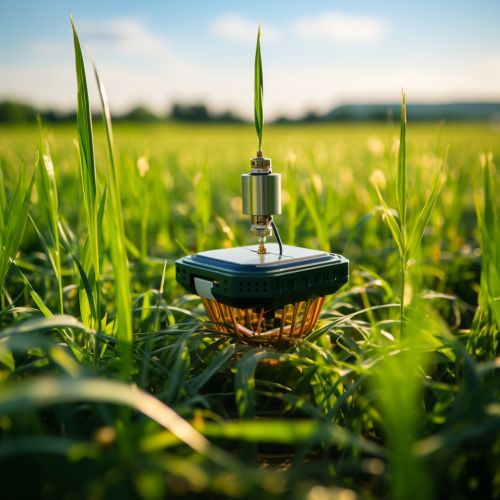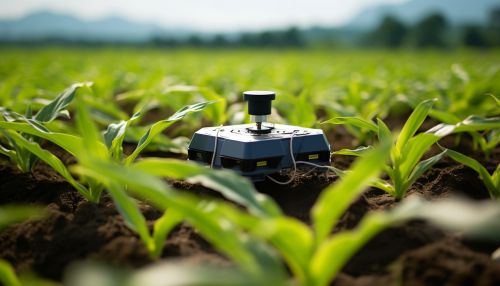The Role of Quantum Sensors in Precision Agriculture
Introduction
Quantum sensors are devices that exploit quantum correlations such as quantum entanglement to achieve superior sensitivity or resolution. This is a significant improvement over classical sensors. In the field of precision agriculture, these sensors play a crucial role in enhancing the efficiency and productivity of agricultural practices.


Quantum Sensors and Their Working Principle
Quantum sensors operate based on the principles of quantum mechanics, a branch of physics that describes the behavior of particles on the microscopic scale. The fundamental concept behind quantum sensors is the use of quantum states, which are extremely sensitive to external influences, to measure physical quantities with high precision.
The working of a quantum sensor involves three basic steps: initialization, interaction, and readout. During initialization, the sensor is prepared in a known quantum state. The sensor then interacts with the system to be measured, causing a change in the quantum state of the sensor. This change is then read out, providing a measurement of the physical quantity.
Role of Quantum Sensors in Precision Agriculture
Precision agriculture is a farming management concept that uses observations, measurements, and responses to variability in crops to optimize returns on inputs while preserving resources. Quantum sensors have the potential to revolutionize precision agriculture in several ways:
Soil Analysis
Quantum sensors can be used for in-depth soil analysis. They can measure various soil parameters such as moisture content, nutrient levels, and pH value with high accuracy. This information can help farmers make informed decisions about irrigation and fertilization, thereby improving crop health and yield.
Crop Health Monitoring
Quantum sensors can also be used for crop health monitoring. By detecting subtle changes in the light reflected off plant leaves, these sensors can identify signs of disease or stress in crops at an early stage. This allows for timely intervention, preventing crop loss and ensuring a good harvest.
Pest Detection
Another application of quantum sensors in precision agriculture is pest detection. These sensors can detect the presence of pests by measuring changes in the vibrational energy levels of molecules. This can help farmers take appropriate measures to control pest populations and prevent damage to crops.
Weather Forecasting
Quantum sensors can also contribute to weather forecasting. By accurately measuring atmospheric parameters such as temperature, humidity, and pressure, these sensors can provide reliable weather forecasts. This can help farmers plan their farming activities more effectively.
Advantages of Using Quantum Sensors in Precision Agriculture
The use of quantum sensors in precision agriculture offers several advantages:
High Accuracy
Quantum sensors provide highly accurate measurements. This is due to the inherent properties of quantum states, which are extremely sensitive to external influences.
Real-Time Data
Quantum sensors can provide real-time data, allowing farmers to make timely decisions and take immediate action when necessary.
Non-Invasive
Quantum sensors are non-invasive, meaning they do not disturb the system being measured. This is particularly important in agriculture, where disturbing the soil or plants can have negative effects.
Scalability
Quantum sensors can be scaled up to cover large areas, making them suitable for use in large farms and agricultural fields.
Challenges and Future Prospects
Despite the numerous advantages, the use of quantum sensors in precision agriculture also faces several challenges. These include the high cost of quantum sensors, the need for specialized training to use and interpret the data from these sensors, and the lack of robustness of quantum states.
However, ongoing research and technological advancements are expected to overcome these challenges in the future. The potential of quantum sensors in precision agriculture is immense, and their widespread adoption could significantly enhance the efficiency and productivity of agricultural practices.
